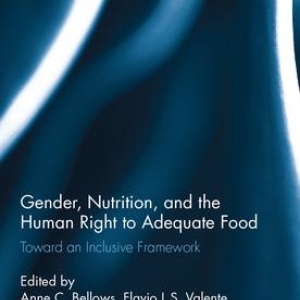
This book introduces the human right to adequate food and nutrition as an evolving concept and identifies two structural "disconnects" fueling food insecurity for a billion people, and disproportionally affecting women, children, and rural food producers: the separation of women’s rights from their right to adequate food and nutrition, and the fragmented attention to food as commodity and the medicalization of nutritional health.
Abstract
Three conditions arising from these disconnects are discussed: structural violence and discrimination frustrating the realization of women’s human rights, as well as their private and public contributions to food and nutrition security for all; many women’s experience of their and their children’s simultaneously independent and intertwined subjectivities during pregnancy and breastfeeding being poorly understood in human rights law and abused by poorly-regulated food and nutrition industry marketing practices; and the neoliberal economic system’s interference both with the autonomy and self-determination of women and their communities and with the strengthening of sustainable diets based on democratically governed local food systems. The book calls for a social movement-led reconceptualization of the right to adequate food toward incorporating gender, women’s rights, and nutrition, based on the food sovereignty framework.
For further details see here.
Citation
Bellows, A.C., Valente, F.L.S., Lemke, S. and Burbano de Lara, M.D.N. (eds) (2016) . Gender, Nutrition, and the Human Right to Adequate Food. Routledge, London and New York.
You can find related resources in the research Library categories on development/poverty, governance and policy, economy and keyword categories: gender, public attitudes, poverty alleviation.







Post a new comment »